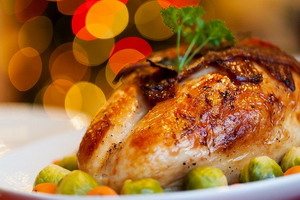
The holiday eating season is officially upon us. Technically it starts with the first bag of Halloween candy we buy, but nice weather and sunny days keep us in the late summer mood so we still go out walking and enjoying the outdoors. But once the first cold wet storm hits, we stay indoors. And along with staying indoors comes the instinctual drive to put on weight in order to keep the winter cold at bay and store calories for the traditional seasonal food shortages that winter used to bring. That instinct drives us to pull out the holiday cookbooks and the old family recipes for holiday treats. Yes, sir, good times are ahead!
This newsletter is about getting healthy, but here we get into a conflict. The joy of holiday cheer, friendship, getting together, and participating with the community has huge health benefits. But these activities are all filled with the very foods we have been learning to avoid all year long for our health. Just saying no with the “healthier than thou” look on your face produces separation rather than the connection the season is all about. How are we to navigate this dilemma? As always, the more we know, the better the choices we can make.
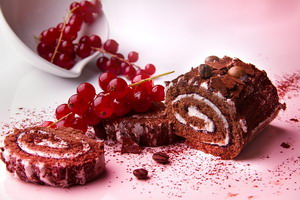
Probably one of the biggest issues to deal with is sugar. For this, I have two ways to help. If you are baking holiday treats yourself, you can easily substitute sugar alternatives such as my Dr Dave sugar, xylitol, allulose, and erythritol. For jumping up the sweetness, I suggest using stevia or monk fruit extract. Each of these has its own little quirks that have to be compensated for. The closest to normal sugar is allulose, a rare sugar that has just recently entered the market. Being new it is still fairly expensive. It has the wonderful capacity to melt and brown like regular sugar, so you can make allulose based caramel. Xylitol has the look and taste of sugar and so it is commonly used to replace sugar in recipes, but it is a sugar alcohol that will produce digestive upset if you consume too much. It does not melt like sugar and so it is difficult to make candy with. Erythritol is similar to xylitol except that it does not create the digestive trouble xylitol does. However, erythritol is not as sweet as sugar and so needs to be mixed with stevia to bring the sweetness up. This is what Dr. Dave sugar is – erythritol plus stevia pumped up to twice the sweetness of sugar.
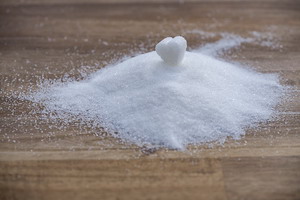
If you are not the one doing the baking, then a little deeper understanding of blood sugar metabolism offers us a clue to how to protect our health. With sugar, everything involves timing. If you give yourself a good sugar blast, but then avoid all sugar for 24 hours, your liver has a chance to recover and reset its blood sugar handling abilities. Our mind might like to think that we would be safer eating just a little sugar at a time several times a day, but this is not true. We are much better off eating our daily load of sugar all at once (within a 1 hour time period) then avoiding sugar for the next 24 hours. So that one piece of Sees candy you sneak every couple hours while you are working is not the best alternative. It is better to wait and eat the whole lot at once and have a real holiday feast, then give it a rest for a day. Think ahead when you know you are going to a party or going to be in situations where sugar will be part of the good times. Avoid sugar before the party and after the party as described and your liver will be much happier. You will be happier as well because you can indulge yourself without the guilt or health conflict that might dampen your fun.
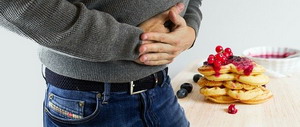
What else can we do to make holiday eating a happier experience for our bodies? One common problem during the holidays is eating to excess. This is never a good idea, as you invariably overrun your innate capacity to properly digest all that food. When that happens, the undigested food grows unfriendly bacteria in our gut – not a good outcome. The obvious choice is to eat less, but we are not always successful in achieving this goal. So as a backup, carry digestive enzymes and hydrochloric acid with you to augment your digestive capacity. If you are sitting down to a feast, pop a couple of digestive enzyme tablets before you start eating in order to have those enzymes in place waiting for the meal onslaught. If there is going to be a lot of meat eaten, pop a couple hydrochloric acid tablets in the middle of the meal to mix with the meat in your stomach to help the meat break down. Vinegar can also help with your own natural acid production, which is why we eat a salad first with an oil and vinegar dressing on it before the main course.

Lots of rich heavy food during the holidays have a tendency to produce congestion and constipation. You can avoid this by being sure to keep up your consumption of vegetables with fiber in them. At that feast make some of those veggie side dishes into main dishes. Your tummy likes it when 80% of your plate is covered with veggies and only 20% covered with high protein foods. As much as possible try to avoid fried foods. There is simply no way around the poisons generated by the deep-frying process. The same goes for food with lots of food coloring in it. The coloring agents bind to the protein in ways that block digestion. Eating food that has natural color to it is great, but the artificial food dyes are problematic.
Butter is a wonderful food that we can use in abundance during the holidays. Butter, lard, coconut oil, avocado oil, and olive oil are all good oils to cook with and consume. Of course, all oils are fattening, but the fattening effect is hugely amplified when the fat is combined with sugar. That is why I like to make my holiday butter cookies with Dr. Dave’s sugar and almond flour. That way the fat is not being consumed with sugar which would drive my insulin levels up and inflame my cells.
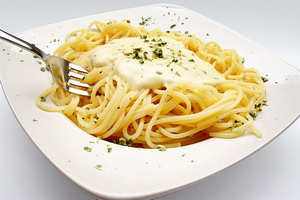
Speaking of flour, if you have any autoimmune disorders, there is simply no way to make wheat or gluten flours safe. This is simply one of those choices that one has to say “no” to during the holidays. Just don’t go there. For everyone else, think of flour the same way you’d think of sugar. Why? Because it only takes a few minutes for that flour to be turned into sugar by the digestive enzymes in your mouth and GI. You might as well be eating sugar. Yeah, I am talking to you pasta eaters that think pasta is good for you. It’s not. It is just sugar to your body. So if you are having a huge pasta feed, follow the same rules as sugar – avoid simple carbs 24 hours before and after the deep dive into the pasta plate.

What other general info for the holidays can I share? Push up your daily vitamin D3 intake to around 5000iu each day. Vitamin D supports the part of your immune system that regulates the rest of the system. This will help moderate food sensitivities. Keep your zinc levels up as it is essential for your stomach function as well as 300 other things in your body. Sleep is a vital nutrient for so many aspects of your health, so be sure you get a good 8 hours a day. Exercise is another nutrient as long as it does not exhaust you. Winter is not the time to push yourself to the edge like you might do in the spring. Get regular exercise, but don’t push yourself.
The holidays are here for enjoying, for connecting with friends and family, for living a good life.
Enjoy,
David
